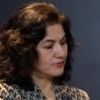10 Human Rights Law Books That Shape Legal Thought
Discover essential Human Rights Law Books recommended by Julian Burnside, Meena Kandasamy, and Conor Gearty



What if the law could be a powerful shield against injustice? Human rights law stands at the frontline of protecting dignity worldwide, yet its complexities often obscure its profound impact. Today, understanding this field means unpacking stories of courage, legal battles, and philosophical debates shaping our societies.
Julian Burnside, a barrister known for defending asylum seekers, and Meena Kandasamy, an activist and author, both emphasize the urgent need to grasp human rights through lived experience and legal rigor. Burnside points to No Friend but the Mountains as a stark revelation of refugee realities, while Kandasamy highlights the power of narratives like Palestine Speaks to humanize conflict.
While these expert-curated books provide proven frameworks, readers seeking content tailored to their specific background, skill level, or focus within human rights law might consider creating a personalized Human Rights Law book that builds on these insights and fits their unique journey.
Recommended by Conor Gearty
Professor, London School of Economics
“Olivier de Schutter brings an outstanding level of academic rigour, deep knowledge and breadth of practical experience to the field of international human rights law. This second edition of an already definitive work is greatly to be welcomed.”
by Olivier De Schutter··You?
by Olivier De Schutter··You?
Unlike most human rights law books that emphasize theory alone, Olivier De Schutter’s text combines his extensive UN experience and academic roles to deliver a rich practical and legal exploration. You’ll gain detailed insights into substantive rights, the war on terror’s impact, and the progressive realization of economic and social rights, supported by case studies and critical questions throughout. The chapters on state obligations and protection mechanisms stand out for their clarity and depth, making complex material accessible without oversimplification. If your goal is to understand human rights law’s evolving landscape with authoritative commentary and real-world context, this book offers a solid foundation, though it’s best suited for serious students and practitioners rather than casual readers.
Recommended by Julian Burnside
Barrister and human rights advocate
“Great book essential reading for all Australians who want to know how our gov't treats innocent people simply looking for a safe place to be: we put them in shocking danger and drive them mad. Probably not read by those devout Christians Scott Morrison and Peter Dutton.” (from X)
by Behrouz Boochani, Omid Tofighian··You?
by Behrouz Boochani, Omid Tofighian··You?
Behrouz Boochani’s experience as a Kurdish-Iranian journalist and political prisoner shaped this powerful account of detention on Manus Island. Written entirely via text messages during his incarceration, the book reveals the psychological and physical toll of offshore detention through vivid narrative and firsthand testimony. You gain insight into the human cost of immigration policies and the resilience of those trapped within them, with chapters that detail daily life, the prison’s brutal conditions, and acts of resistance. This is a vital read if you want to understand the intersection of human rights law and lived refugee experience, especially from a perspective rarely heard in mainstream discourse.
by TailoredRead AI·
This tailored book explores core principles of human rights law, designed to align precisely with your background and interests. It covers foundational concepts while delving into specialized topics that matter most to you, providing a clear pathway through complex legal terrain. By focusing on your specific goals, it helps you grasp key legal doctrines, landmark cases, and evolving international norms relevant to your areas of concern. The personalized approach reveals connections between legal theory and real-world applications, enhancing your understanding of human rights protections and their practical impacts. This focused exploration of human rights law offers an engaging learning experience that matches your interests and supports meaningful mastery.
by Philip Alston, Ryan Goodman··You?
by Philip Alston, Ryan Goodman··You?
Philip Alston's decades of experience as the United Nations Special Rapporteur on extreme poverty and human rights shape this extensive examination of international human rights law. Alongside co-author Ryan Goodman, he curates a broad array of primary and secondary materials, including legislation and case law, paired with insightful commentary that guides your understanding of complex themes. You'll find chapters that challenge you with questions encouraging reflection and critical thinking, making it clear this is as much about engaging with the material as absorbing it. This book is best suited for those seeking a deep, scholarly grasp of human rights law, particularly students and professionals aiming to navigate and analyze the field rigorously.
Recommended by Publishers Weekly
“Hochschild's superb, engrossing chronicle focuses on one of the great, horrifying and nearly forgotten crimes of the century: greedy Belgian King Leopold II's rape of the Congo, the vast colony he seized as his private fiefdom in 1885. Until 1909, he used his mercenary army to force slaves into mines and rubber plantations, burn villages, mete out sadistic punishments, including dismemberment, and commit mass murder. The hero of Hochschild's highly personal, even gossipy narrative is Liverpool shipping agent Edmund Morel, who, having stumbled on evidence of Leopold's atrocities, became an investigative journalist and launched an international Congo reform movement with support from Mark Twain, Booker T. Washington and Arthur Conan Doyle. Other pivotal figures include Joseph Conrad, whose disgust with Leopold's 'civilizing mission' led to Heart of Darkness; and black American journalist George Washington Williams, who wrote the first systematic indictment of Leopold's colonial regime in 1890. Hochschild documents the machinations of Leopold, who won over President Chester A. Arthur and bribed a U.S. senator to derail Congo protest resolutions. He also draws provocative parallels between Leopold's predatory one-man rule and the strongarm tactics of Mobuto Sese Seko, who ruled the successor state of Zaire. But most of all it is a story of the bestiality of one challenged by the heroism of many in an increasingly democratic world. 30 illustrations. Agent: Georges Borchardt. First serial rights to American Scholar. Author tour.”
by Adam Hochschild··You?
by Adam Hochschild··You?
Drawing from meticulous historical research, Adam Hochschild unpacks the brutal colonization of the Congo under King Leopold II, revealing the mechanisms of greed and terror that fueled one of the darkest chapters in human rights history. You gain insight into how the exploitation was systematically hidden and how a diverse group of activists, including Edmund Morel and George Washington Williams, mobilized to expose these atrocities and spark the first international human rights movement. Chapters detail the complicity of global powers and the heroic resistance that shaped modern advocacy. This book suits anyone looking to understand colonial legacies through a lens of law, activism, and historical accountability.
Recommended by George Saunders
Author and MacArthur Genius Grant Recipient
“A stunning, essential, and heartbreaking book that puts a profoundly human face on the suffering of the Palestinian people. This should be required reading for anyone with an interest in the Middle East, which is to say: everyone. Like all Voice of Witness books, Palestine Speaks uses beautifully shaped narratives that evoke empathy and help the reader see connections to the narrators. The effect is magical and empowering, allowing readers to imagine positive outcomes.”
by Mateo Hoke, Cate Malek··You?
by Mateo Hoke, Cate Malek··You?
Drawing from years of on-the-ground reporting and deep engagement with human rights journalism, Mateo Hoke and Cate Malek present firsthand narratives that reveal the daily realities of Palestinians living under occupation. You gain an intimate understanding of how conflict shapes lives through voices like a Gaza journalist, a West Bank children’s center director, and an activist professor. The book immerses you in personal stories that challenge mainstream perspectives, providing insights into the human side of legal and political struggles. It’s a compelling read for anyone seeking to grasp the lived experiences behind headlines, especially those interested in human rights law and Middle Eastern affairs.
by TailoredRead AI·
by TailoredRead AI·
This personalized book explores the essential steps for impactful human rights advocacy, tailored specifically to your interests and background. It examines practical actions, legal principles, and communication techniques that empower you to engage effectively in diverse advocacy contexts. By focusing on your specific goals, the content reveals how to navigate complex human rights challenges and create meaningful change. With a tailored approach, the book covers foundational concepts alongside detailed guidance on organizing campaigns, influencing policy, and mobilizing support. It offers a clear, focused pathway through the broad field of human rights law, helping you develop your unique advocacy voice and approach with expert knowledge synthesized for your learning journey.
Recommended by Rushan Abbas
Founder & Exec. Director, Campaign for Uyghurs
“Congrats @nuryturkel Everyone must read this book. After the WWII, the int’l community regretted & said that they were deceived, didn’t know, & info flowed too slowly. The same kind of ignorance can’t be claimed today. The world community has no excuse but to act!” (from X)
by Nury Turkel··You?
by Nury Turkel··You?
Nury Turkel’s decades of experience as a human rights attorney and Uyghur activist led him to write this revealing memoir that exposes China’s systematic oppression of the Uyghur people. You’ll gain insight into the mechanisms of state surveillance and cultural erasure through Turkel’s personal story, including his birth in a reeducation camp and his journey to becoming the first Uyghur American law graduate. By detailing the US and global response to these atrocities, the book offers a critical perspective on international human rights law in action. This is essential reading if you want to understand the geopolitical and legal complexities behind one of today’s gravest humanitarian crises.
by Jack Donnelly··You?
by Jack Donnelly··You?
Jack Donnelly's extensive experience as Andrew Mellon and John Evans Professor at the University of Denver informs this third edition of his influential work on human rights. He challenges you to reconsider human rights not as fixed truths but as historically shaped and context-dependent concepts. The book delves into the political and philosophical underpinnings of universal rights, offering nuanced analysis on how these ideas operate in practice and their role in confronting authoritarianism. Chapters discuss the evolution of human rights discourse and its application in international law, making it a dense yet insightful read for anyone serious about understanding the complexities behind human rights claims.
by Thomas Mertens··You?
by Thomas Mertens··You?
Thomas Mertens's decades of scholarship on law and morality culminate in this nuanced exploration of human rights, anchored firmly in Kantian philosophy. You’ll gain a clear understanding of the Universal Declaration of Human Rights' philosophical underpinnings, unpacking ten key rights through the lens of historical and contemporary thinkers. The book’s distinctive approach revolves around the tension between individual autonomy and social belonging, a concept Mertens calls 'unsocial sociability,' which shapes how rights are interpreted and balanced against duties. If you want to deepen your grasp of legal philosophy and its practical implications for human rights, this book offers insightful frameworks without oversimplifying complex ideas. It’s especially suited for those interested in the moral foundations behind legal norms rather than just legal texts.
by Michael Goodhart··You?
by Michael Goodhart··You?
What happens when political theory meets human rights law? Michael Goodhart, an Associate Professor specializing in these fields, explores this intersection with clarity and depth. You’ll find detailed discussions on contentious topics like universalism versus relativism, supplemented by case studies that bring these debates to life—from religion and human rights to gender and sexual orientation issues. The third edition updates you on the latest developments and offers pedagogical tools that encourage you to question assumptions, making it ideal for anyone serious about understanding both the theory and practice of human rights.
by Siddharth Kara··You?
by Siddharth Kara··You?
Siddharth Kara leverages his extensive expertise in modern slavery and human trafficking to expose the harsh realities behind cobalt mining in the Democratic Republic of the Congo. Through firsthand testimonies and rigorous investigation, you gain insight into how child labor, militia control, and environmental degradation intertwine within the cobalt supply chain powering everyday tech. The book guides you through the ethical and legal complexities that implicate global consumers and corporations alike, highlighting the human rights challenges embedded in this critical resource. If you're seeking to understand the intersection of natural resources and international human rights law, this book offers a sobering, deeply researched perspective.
Get Your Personal Human Rights Law Strategy ✨
Avoid one-size-fits-all advice with targeted, practical insights tailored to your goals.
Trusted by legal scholars and human rights advocates worldwide
Conclusion
These ten books weave together history, legal theory, personal testimony, and contemporary challenges, offering a layered understanding of human rights law. Whether grappling with colonial legacies in King Leopold's Ghost or navigating international law through International Human Rights Law, they illuminate paths for learners at every stage.
If you're confronting refugee rights issues, start with No Friend but the Mountains and Palestine Speaks to ground yourself in human stories. For rigorous legal frameworks, pair International Human Rights with Universal Human Rights in Theory and Practice. Seeking to understand philosophical roots? A Philosophical Introduction to Human Rights offers nuanced perspectives.
Alternatively, you can create a personalized Human Rights Law book to bridge the gap between general principles and your specific situation. These books can help you accelerate your learning journey and deepen your engagement with human rights law.
Frequently Asked Questions
I'm overwhelmed by choice – which book should I start with?
Start with International Human Rights Law for a solid legal foundation. It offers clear case studies and commentary that anchor your understanding before exploring more narrative-driven titles.
Are these books too advanced for someone new to Human Rights Law?
Not at all. Books like No Friend but the Mountains and Palestine Speaks provide accessible narratives, while others like Universal Human Rights in Theory and Practice gradually introduce complex theories.
What's the best order to read these books?
Begin with personal narratives for context, then move to legal frameworks and theoretical works. This approach deepens empathy before tackling legal complexities effectively.
Do I really need to read all of these, or can I just pick one?
You can pick based on your interest—choose legal texts for theory or narratives for lived experience. However, together they offer a comprehensive perspective.
Which books focus more on theory vs. practical application?
Universal Human Rights in Theory and Practice and A Philosophical Introduction to Human Rights focus on theory, while International Human Rights Law and International Human Rights provide practical legal insights.
How can I get tailored insights without reading all these books?
Great question! While these expert books offer rich insights, personalized content can focus on your specific interests and goals, saving time. Consider creating a personalized Human Rights Law book that complements these works with targeted knowledge just for you.
📚 Love this book list?
Help fellow book lovers discover great books, share this curated list with others!
Related Articles You May Like
Explore more curated book recommendations









